
image via udemycoupons24
How would your life change if all of your choices were conscious? Can self-mastery help you to access your full potential?
Yes, it can.
However, this makes all the difference:
You have all of the tools for self-mastery within yourself.
"The best day of your life is the one on which you decide your life is your own. No apologies or excuses. No one to lean on, rely on, or blame.

image via wikipedia
-Epictetus
Self-Mastery: The Key To Meeting The Best Version Of You
Before we can define self-mastery, we need to talk about what mastery means.
Mastery is defined as being highly proficient or skilled in one or more areas of your life.
Therefore, self-mastery literally means being the master of your self.
“Most powerful is he who has himself in his own power.”

image via wikipedia
-Seneca
What controls you? Your impulsive whims and wants? Or do you make decisions about how you do everything at a higher level?
Self-mastery is the art of taking full responsibility for yourself and for your own life.
Fun fact:
No one is born knowing self-mastery. It can be taught and you can learn it.
Arête
A key component of self-mastery is arête, an ancient Greek word that means virtue, or more often, excellence.
Pro tip:
Arête is the art of personal excellence and the highest quality of everything you do or experience.
"Arête implies a respect of the wholeness or oneness of life, and a consequent dislike of specialization. it implies a contempt for efficiency — or rather a much higher idea of efficiency, an efficiency which exists not in one department of life but in life itself.”

image via wikipedia
-Robert M. Pirsig
Simply stated:
Give
to every single thing that you do, when you're doing it.
Whether you're working out or writing or speaking, do your personal best.
Pro tip:
Don't consume anything that's not of the highest quality, whether it's your food or the books you read.
Homeostasis And The Psychology Of Self-mastery: Wait, What?
That was a mouthful -- here's what it means:
Have you ever been in a situation in which you actually feared success? Consciously or subconsciously, most people have experienced this.
"He has not learned the first lesson in life who does not every day surmount a fear."

image via wikipedia
-Ralph Waldo Emerson
As defined by Dictionary.com (the 2nd definition, Psychology), homeostasis is:
A state of psychological equilibrium obtained when tension or a drive has been reduced or eliminated.
Fun fact:
Our internal bodily systems are designed to maintain stable homeostasis. Biologically, we are geared towards staying with what is comfortable and known.
Basically, when you find a regulated and secure balance. Homeostasis is a GOOD thing. We want our bodily systems to be precisely regulated.
Pro tip:
Being aware of our biological tendencies to maintain homeostasis will help us to switch it off when it's stifling our growth.
Change of any kind, whether positive or negative, takes us out of our comfort zone.
Put another way:
It jacks with our homeostasis.
“There’s a tremendous bias against taking risks. Everyone is trying to optimize their ass-covering.”

image via wikipedia
-Elon Musk
Growth and safety
Abraham Maslow, in his book "Toward a Psychology of Being," explained that two powerful sets of forces drive the human condition:
The drive for growth and the opposing force, the drive for safety.
While these two drives both served mankind well in prehistoric times, the opposing force, safety, often holds us back in realizing our full potential in our modern world.
What that means:
The drive for safety will keep us clinging to the past and fearing change. This inherently causes us to miss out on opportunities for growth. And even opportunities for failure. Failure is a big part of learning.
"I have not failed. I've just found 10,000 ways that won't work."
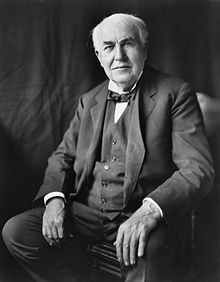
image via wikipedia
-Thomas Edison
The fact is:
Growth can bring pain.
Every step we take forward can lead us into unfamiliar territory. Furthermore, with every step forward, we give up something that's familiar and often satisfying.
Fun fact:
If you're not a little bit afraid, you're not growing.
10 Ways You Will Benefit From Self-Mastery
Fun and creative expression | |
|---|---|
Greater vitality and health | |
Fulfilling and happy relationships | |
Character development and strength | |
A sense of purpose, meaning, and value | |
Financial independence and security | |
Personal peace and contentment | |
Feeling of accomplishment | |
Meaningful and enjoyable career | |
Stress-free productivity |
“The happiness of a man in this life does not consist in the absence but in the mastery of his passions.”

image via wikipedia
-Alfred, Lord Tennyson
4 Core Steps To Self-Mastery
These four steps are fluid, meaning that they don't happen necessarily in this precise order.
Awareness

When we say to be aware, what we mean specifically is this:
Be physically present and aware in everything you do.
Broken down:
Whatever you're doing, do that. If you feel your mind wandering, gently direct it back to NOW.
Focus on the task at hand, whether it's talking to your mom or working on a project at your job.
Humility and acceptance

Here's the deal:
You're a lowly but powerful human being with unlimited potential.
So is everyone else.
Pro tip:
If you're going to master yourself, one of the first things you need to do is check your ego at the door. Approach all things with a beginner's mind.
Most of us are not incredibly unique, and we're only as special as we make ourselves.
Author Tim Ferris interviewed legendary ex-Navy SEAL Jocko Willink for his book, Tools of Titans. Ferriss asked Willink "What makes a good commander?"
Here is how Willink responded:
"The immediate answer that comes to mind is humility. Because you've got to be humble and you've got to be coachable."

image via wikipedia
-Jocko Willink
A big step on your journey to self-mastery is being humble enough to accept the fact you're no better than anyone else.
But here's the best part:
You're also no worse than anyone else.
Pro tip:
Every human being on the planet has 24 hours in a day, and 365 days in a year.
Bill Gates has 24 hours in a day. Oprah Winfrey has 24 hours in a day. What are you doing with your 24 hours? No more excuses.
Choose wisely

As we mentioned earlier when talking about arête, be discerning in all that you do. To discern means to "choose wisely."
You are your choices.
“In the end we are our choices. Build yourself a great story.”

image via wikipedia
-Jeff Bezos
Every single choice you make, regardless of how small or seemingly unimportant, has a consequence, either positive or negative.
The unconscious choice is your enemy.
Focus and execution
Once you're self-aware and have made your conscious choices, the hard part starts:
Focus and execution.
"Knowing is not enough; we must apply. Willing is not enough; we must do."

image via wikipedia
-Johann Wolfgang von Goethe
Execution is having the courage to act on the decisions and choices you make.
Being focused requires you to stay alert, mature, and unemotional as you complete the tasks you've consciously chosen to do.
Pro tip:
You will eventually become so good at whatever you're learning to do that you'll begin to do it unconsciously and it becomes easier.
The Journey To Self-Mastery
You won't get much done until your base needs are met.
In 1943, American psychologist Abraham Maslow presented the idea that human beings have a specific set of needs that must be met in a prescribed order.
Maslow's "Hierarchy of Needs" is presented as a pyramid as seen in the diagram below.
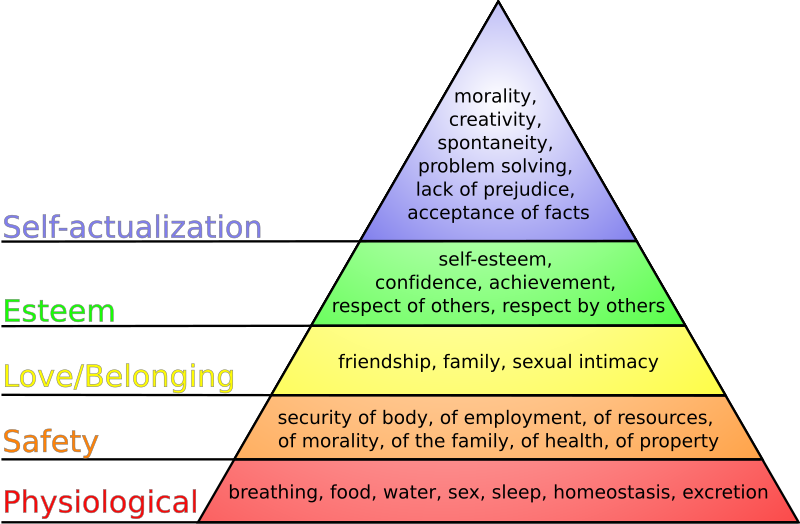
Image via zazzle
By Maslow's theory, a person has a difficult time moving to a higher level of needs unless the needs outlined in the previous layer have been met.
For example, if you lack food, sleep, and water, you're not likely concerned (at the moment) with achievement and self-esteem.
Likewise, if you don't feel safe physically, you probably aren't in good mental place for self-actualizing.
Maslow's theory
According to Maslow's theory, when our "deficiency needs" (the needs on the bottom four levels of the pyramid) aren't being met, we feel that something is missing in our lives.
The good news?
Once these needs are gratified, we can shift our attention to our growth needs.
Pro tip:
While not a precise science, Maslow's Hierarchy of Needs may give you a good guide to what may be holding you back from getting to self-actualization.
10 Secrets For Developing Self-Mastery And Peak Performance
The road to self-mastery has a lot of hills and valleys. Also, more than a few hazardous roads!
But these tips will help you navigate more effectively.
Stop multitasking (don't roll your eyes!)
Research has shown that it's counterproductive. Whatever you're doing, give that task your full attention.
It may seem impossible not to multitask, but when you choose to focus instead you benefit.
Double-click your mouse before making any choice or decision
One study indicated that giving the brain the time it needs — exactly 120 milliseconds, about the time it takes to double-click your mouse — to focus on something will optimize your decision-making.
"Between stimulus and response there is a space. In that space is our power to choose our response. In our response lies our growth and our freedom."
Stephen Covey
Rephrase your questions

Image: Questions by Nick YoungsonCC BY-SA 3.0Alpha Stock Images via Blue Diamond Gallery
Renowned life coach Tony Robbins says "questions are the answers."
If you ask yourself "why am I such a loser?" when you fall short of a goal...
...your brain will supply you with an answer.
Here's a shocking truth:
If you rephrase your question to "what can I learn from this?" your brain will also give you an answer.
Your brain will respond to however it's addressed. In kind. Control the responses.
Learn to say "no" respectfully

Image: Pixabay Licence, geralt, via Pixabay
Most humans are innately geared to want to help and please.
However, saying "yes" to things that will steal your time is one of the most troublesome barriers to self-mastery.
You already know when you need to say yes and when you need to say no. However, the trick is mastering the respectful "no."
Pro tip:
Don't offer a bunch of excuses. A simple "I'm sorry, but I can't" will suffice.
Get enough sleep
Your sleep needs will vary, but most adults need between six to eight hours of sleep per night.
If you frequently get less than your personal optimal amount of sleep, your performance will lag.
Pro tip:
Any gain you think you're making by sleeping less will be lost in fatigue and mistakes.
Detach yourself from the past
No matter how great (or not) your past may be, you won't move forward until you let go of it. The best time to begin self-mastery was yesterday.
The second best time is now.
"This is how you grow. You step into chaos and create simplicity and knowingness."
-Benjamin Hardy, Thrive Global
Make conscious choices
Do you ever make unconscious choices? Most of us do.
Consider this:
Do you automatically take the elevator?
How about mindlessly opening your Facebook app when you pick up your phone?
Neither one of those is necessarily a bad thing, as long as you're consciously choosing to do them.
Pro tip:
Monitor your thoughts and habits and be sure that you're conscious of the choices you make.
Accept resistance...and expect to backslide
Your mind and body are going to occasionally rebel against your growth.
If you're a human being, you're going to have lazy days and hazy days.
Pro tip:
However, be accepting of your resistance. Guilt and shame are a waste of time and will delay your progress.
Life throws punches at you, and it's easy to just sit back and avoid the punches. But you're a fighter and fighters roll with the punches.
Watch this motivational speech from Rocky Balboa to his son.
Start in moderation
When we get excited about change (after we get over the hump of initial fear, that is), it's tempting to be enthusiastic and gung-ho.
However, start small and work your way up to grander goals.
It's better to enjoy small victories than to expect too much of yourself early on and experience disappointment.
Pro tip:
Keep in mind that long-term self-mastery isn't a sprint. It's a marathon.
Say affirmations
Find your mantra or affirmation and say it at least twice a day. Once right before bed, and once when you wake up.
"What mantra?," you may be asking.
Something as simple as "I will be successful today" can be hugely effective.
“It’s the repetition of affirmations that leads to belief. And once that belief becomes a deep conviction, things begin to happen.”
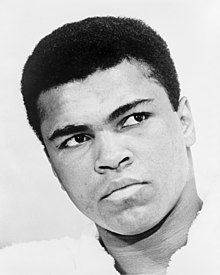
image via wikipedia
-Muhammad Ali
Habits And Self-Mastery
Self-mastery isn't something that you just achieve because you want to. It happens because of hundreds and thousands of small decisions you make every day of your life.
Make the conscious decisions that will improve your life: turn the page in the book, choose the stairs, choose to say a respectful no. Then learn to hack your habits
"Resolve to perform what you ought; perform without fail what you resolve."

image via wikipedia
-Benjamin Franklin
4 Secrets To Hacking Your Environment For Changing Your Habits
In Atomic Habits, James Clear puts a lot of emphasis on the fact that very disciplined people don't necessarily have that much more willpower than the average person has.
However, what they're very good at is controlling their environment.
You can master yourself more easily if you hack your environment.
1. Remove distractions
This means smartphone notifications, reminders (except those that are essential to your self-mastery journey), alerts, etc...
Put your phone on "do not disturb" and leave it there most of the time. Add the important people in your life to your "Favorites" so that their calls come through.
2. Make it difficult to indulge in habits you're trying to break
No kidding, when you are on auto-pilot and not making conscious decisions, simply forcing yourself to overcome an inconvenience may be what you need to hit your goal.
Here are some examples:
Increase the number of steps between you and your bad habits.
Pro tip:
What you need to do to keep your promises to yourself and commit to your positive habits is to increase the friction between you and the bad habit.
3. Make it easy to stick to the habits you're trying to make
On the other hand, when it comes to developing your new positive habits...
make it easy.
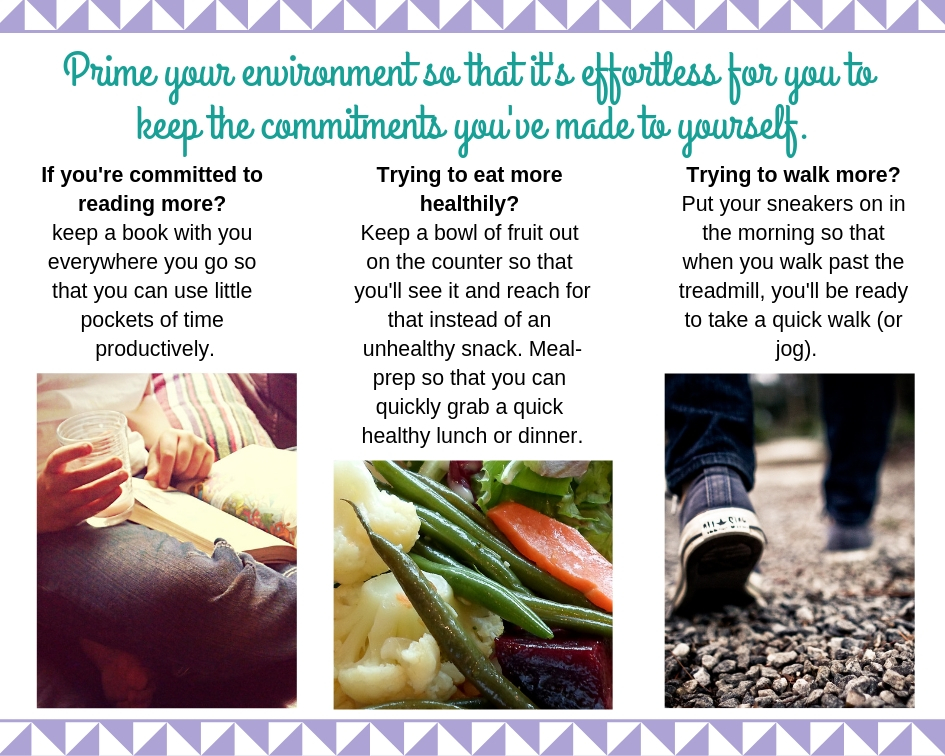
image via Canva
Pro tip:
Reduce the friction between you and your new positive habits.
4. Make it impossible to hit the snooze button
First of all, when you hit the snooze button for that extra bit of sleep, it's not quality sleep.
Second, have you done the math?
If you snooze 10 minutes a day, five days per week, that is 2,600 minutes a year, or roughly 43 hours a year that you're wasting snoozing.
Mind.Blown.
That's like gaining an extra week's vacation every year.
What could you do with an extra week in every year of your life?
Therefore, put your phone across the room if you use your phone as an alarm. Even better:
Buy an actual real alarm clock that you have to get up to turn off.
Pro tip:
You'll never feel better after sleeping an extra 10 minutes, but you'll feel lots better after working out or enjoying some quality reading time.
8 Self-Mastery Secrets Of CEOs And Leaders
A group of Duke University researchers administered psychometric tests to U.S. CEOs and senior executives to determine this:
Do CEOs differ from non-CEOs in terms of underlying attitudes?
The answer:
Yes, CEOs differ significantly from laypeople and even from Chief Financial Officers.
Here are some of the self-mastery secrets of CEOs and leaders.
1. CEOs and leaders get adequate sleep
Sleep needs differ by individuals, but most adults need between six to eight hours of sleep per night.
Although there are individuals who need slightly less, very few people can function well on chronic inadequate sleep.
An infographic from Forbes shows the sleep habits of 21 highly successful people, including Barack Obama, Benjamin Franklin, Richard Branson, Bill Gates and more.
Here is how much sleep they get every night:
sleep 5-6 hours per night
sleep 7-8 hours per night
sleep 6-7 hours per night
sleep 4-5 hours per night
The times they go to bed vary widely, and that seems to be much less important than the number of hours of sleep.
Pro tip:
Albert Einstein needed 10 hours of sleep per night.
2. They meditate, pray, or reflect
In "Tools of Titans," Tim Ferriss noted that more than 80 percent of the people he interviewed for the book practice some form of daily meditation or mindfulness practice.
3. Most of them get up early
Richard Branson goes to bed at midnight, and Winston Churchill famously went to bed at about 3:00 a.m. (and slept until 8:00 a.m.).
They're not the norm, though:
Most of the successful people we studied go to bed early enough to get up at a decent hour. None of them are sleeping until noon, at least not on a regular basis.
3. They read. A lot
Wildly successful people tend to be readers.
In fact, author Tom Corley (referenced in point number five below) said that 88 percent of the successful people he studied read 30 minutes or more per day.
Shark Tank star and owner of the Dallas Mavericks Marc Cuban reads three hours a day. Microsoft founder Bill Gates reads for an hour at bedtime.
The great thing is, with e-readers and audiobooks, there's no excuse to not get some reading in. Find the style that works for you, and just do it.
4. They check email only once or twice a day
In The 4-Hour Work Week, Tim Ferriss, who interviews famous business leaders from all over the world, suggests checking email twice a day.
Constantly checking email is a time suck.
5. Successful people give back
In "Wealthy Habits: The Daily Success Habits of Wealthy Individuals," author Tom Corley says that 73 percent of the 233 successful people he studied for five years volunteer more than five hours per month.
Surprised yet?
6. Productive CEOs eat the frogs and expect others to do the same
The term "eating the frog" refers to the unpleasant tasks that no one wants to do.
Well, someone has to do them...
and successful people don't shy away from eating the frogs. Furthermore, they won't tolerate others who think they're too good to follow suit.
"If it's your job to eat a frog, it's best to do it first thing in the morning. And If it's your job to eat two frogs, it's best to eat the biggest one first."
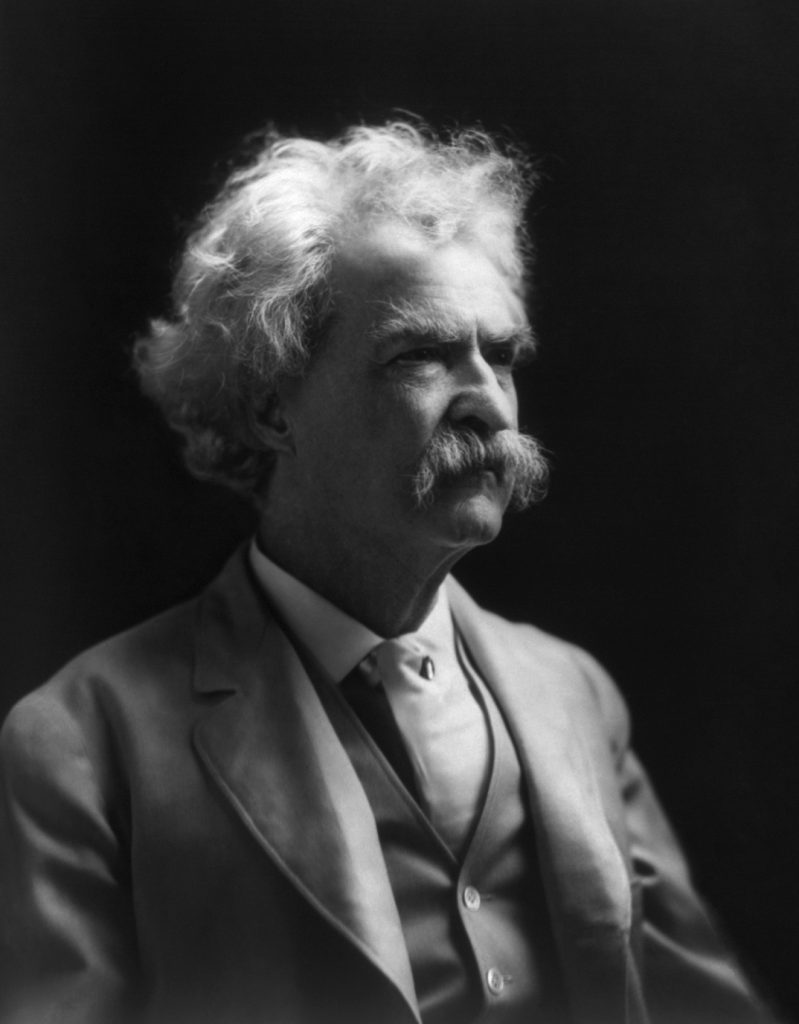
image via wikipedia
-Mark Twain
7. They do boring stuff uncommonly well
"Whether it is making your bed daily, or sending out a thank you note to a return customer, when you do the boring stuff uncommonly well you'll be head and shoulders above your competition."

image via thetulsavoice.com, by Freddie Robles
-Jake Crandall
8. The Steve Jobs question
Apple founder Steve Jobs famously asked himself this question every morning:
"'If today were the last day of my life, would I want to do what I am about to do today?' If the Answer is 'no' for too many days in a row, I know I need to change something."

image via wikipedia
-Steve Jobs
5 Bulletproof Strategies For Meeting Your Goals
Setting goals is the easy part. However, it's not so easy to actually stick with your goals.
Here's what works:
1. Surround yourself with winners
On your journey to self-mastery, you are going to have to detach yourself from some of the undisciplined people in your life.
Of course, you won't be able to (and won't want to) cut off everyone you know who lacks the discipline you're striving for, but whoever you spend most of your time with is who you'll become.
Don't join the easy crowd.
“You are the average of the five people you spend the most time with.”

image via wikipedia
-Jim Rohn
2. Focus on one goal at a time
Author James Clear suggests that when you need to make progress on a goal, it helps to "press pause" on less important goals to get the urgent one done. Essentially, your goals are all competing against each other for your time and attention.
3. Choose a strategy for prioritizing your goals
There are a number of different time-tested methods you can use to prioritize your goals.
Here are some of the most popular, and the ones recommended by James Clear:
Here is a diagram that shows The Eisenhower Matrix, which is very similar to Stephen Covey's four quadrants.

image via jamesclear
4. Set goals that motivate you
A lot of success in reaching goals has to do with the language you use.
Speaking frankly:
Perhaps "lose 10 pounds" isn't motivating, but "buy a new dress next month in one size smaller" might be. Same goal, different language.
Another example could be this:
Instead of setting a goal to "read more," ...
how about "read a Harry Potter book so I can discuss it with my (son/daughter/niece/nephew)."
“He who has a Why to live for can bear almost any How.”
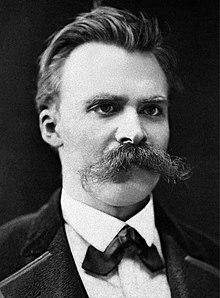
image via wikipedia
-Nietzsche
5. Eat an elephant
How do you eat an elephant?
One bite at a time.
If you have a task to complete that seems overwhelming, break it up into small chunks and make slow, steady progress. Set aside a time each day (or weekend) to work on that task.
Morning Routines Of Wildly Successful People
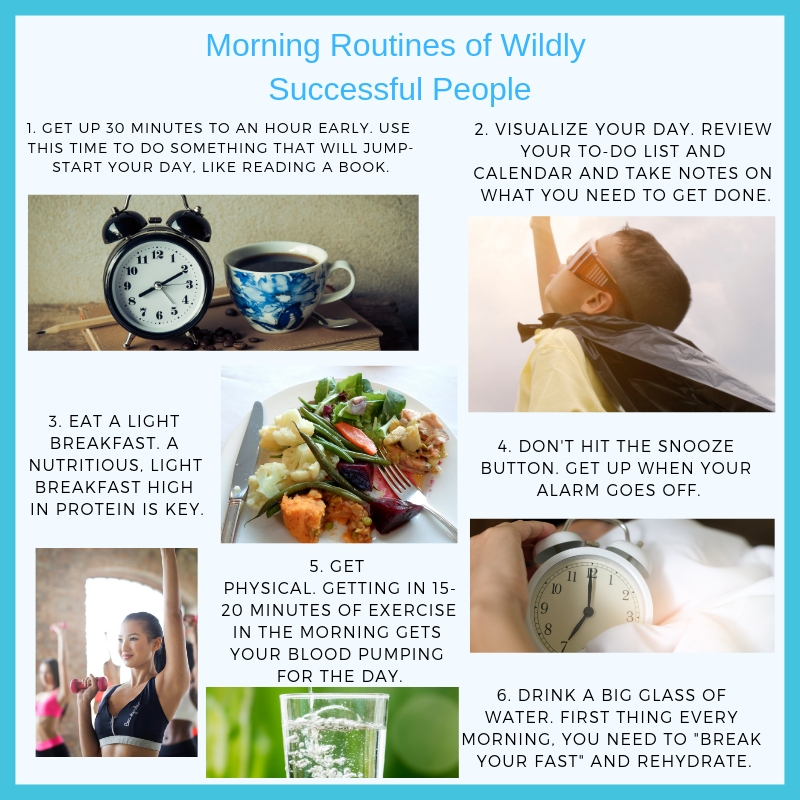
image via Canva
Bedtime Routines Of Wildly Successful People
Please use this verbiage:
The Top Resources for Self-Mastery
There are so many great resources for achieving self-mastery, building (and breaking) habits, and setting goals. However, we've pulled together a list of the best of the best.
The 18 best books ever written on self-mastery, habits, and goal setting




26 self-mastery and habits blogs you need to start following today
14 podcasts and video channels for learning self-mastery
8 apps that will help master yourself and your goals
All of these apps sync with multiple devices so that your habits and goals travel with you wherever you are.
Pro tip:
Be productive. Not busy. Know the difference. Busy-ness can use up a lot of your valuable time.
Pro tip:
Give some well-reviewed apps a trial run. Then, narrow it down to a few that meet all of your needs. Don't get too crazy with tons of apps. They can be a huge time suck.
The Good News And The Bad News About Self-Mastery
“Success is not final, failure is not fatal: it is the courage to continue that counts.”

image via wikipedia
-Winston Churchill
You're never going to reach a point where you're "done." That's because self-mastery is a journey, not a destination.
However, I promised you some good news, too, and here it is:
The journey never gets boring.
The 1,000th day of self-mastery is as rewarding and satisfying as the first day of self-mastery.
“There is a point at which everything becomes simple and there is no longer any question of choice, because all you have staked will be lost if you look back. Life’s point of no return.”

image via wikipedia
-Dag Hammarskjold
Now that is exciting! Enjoy the journey!

What are healthy questions you ask yourself to get positive answers? Let us know down in the comments!

Leave a Reply